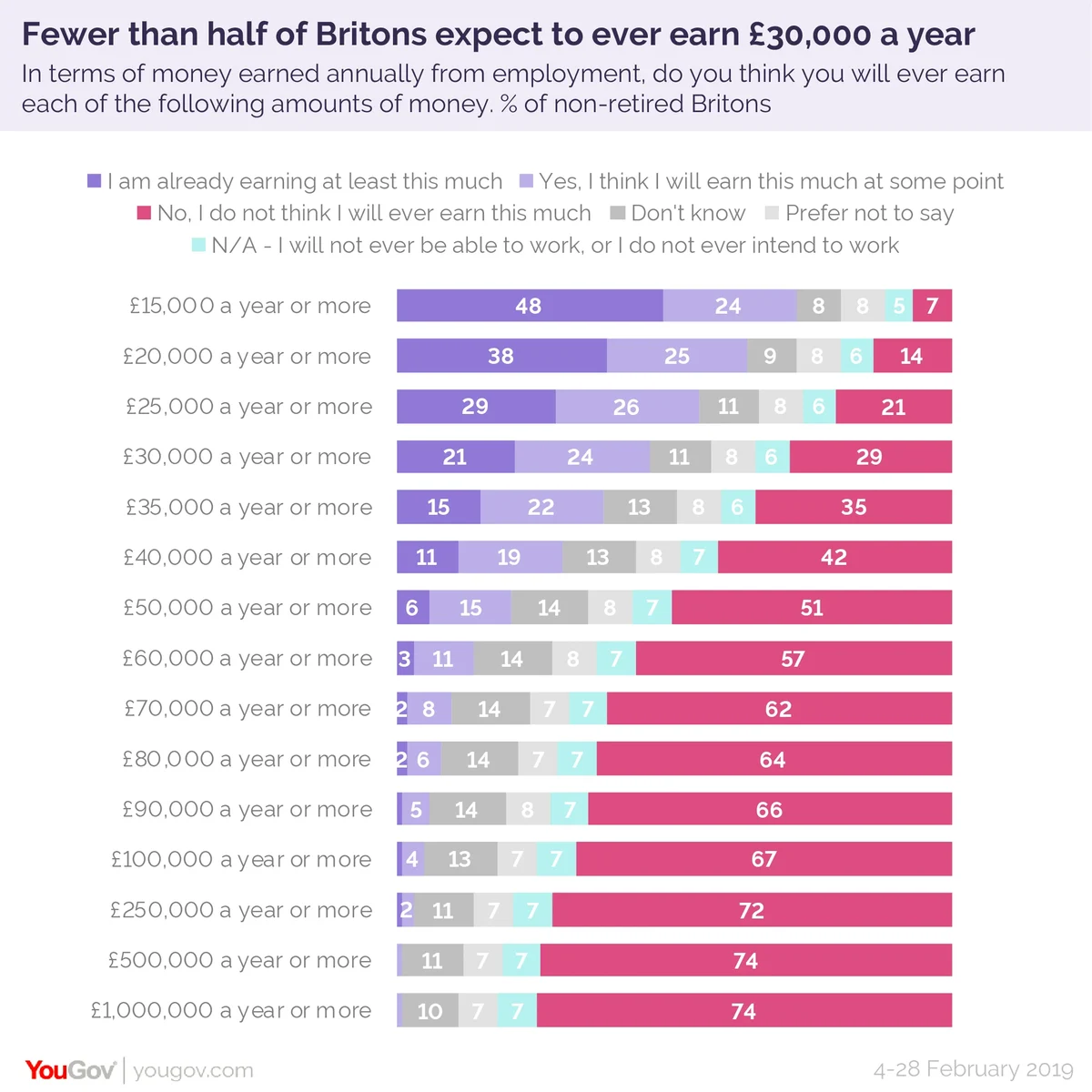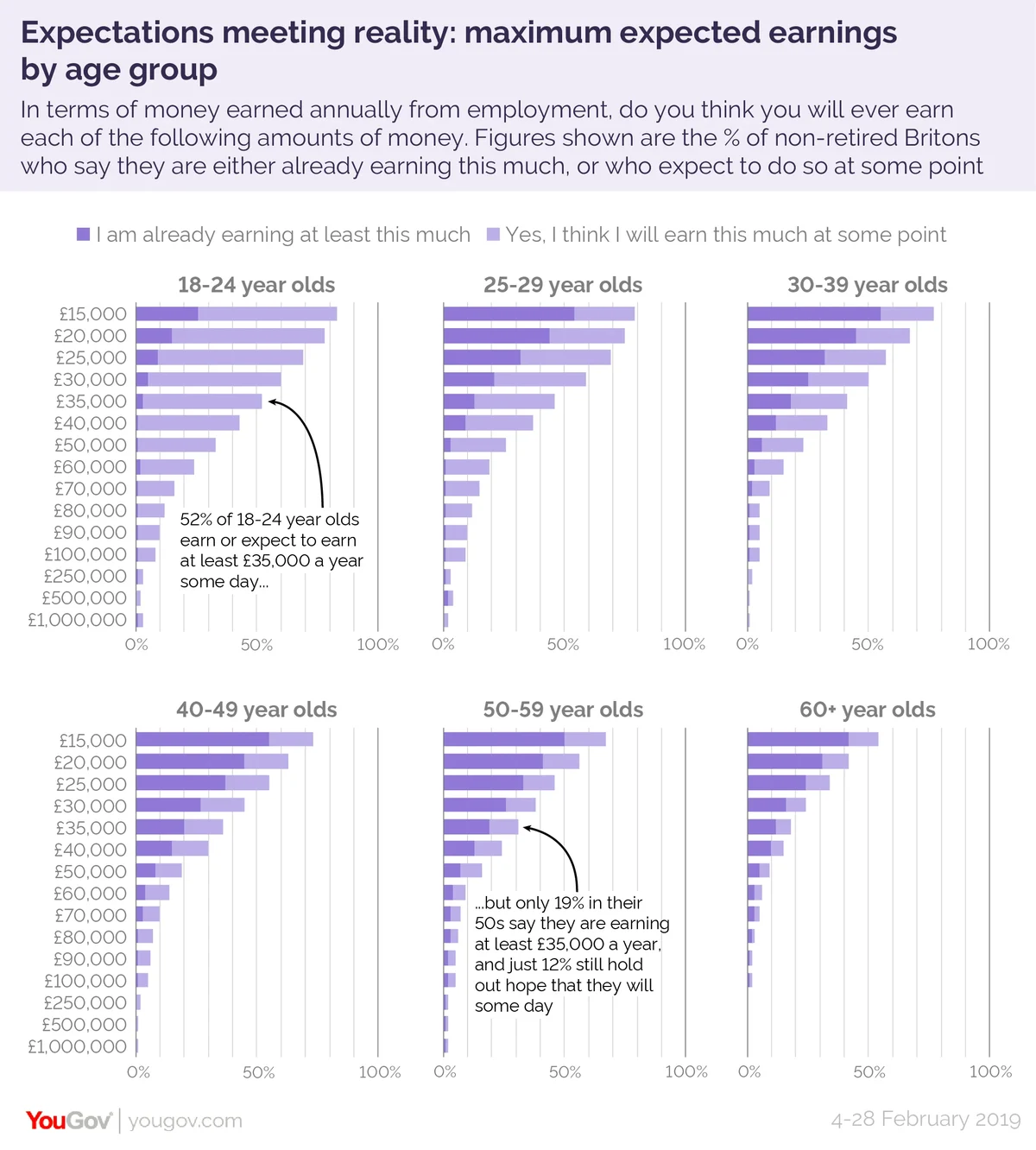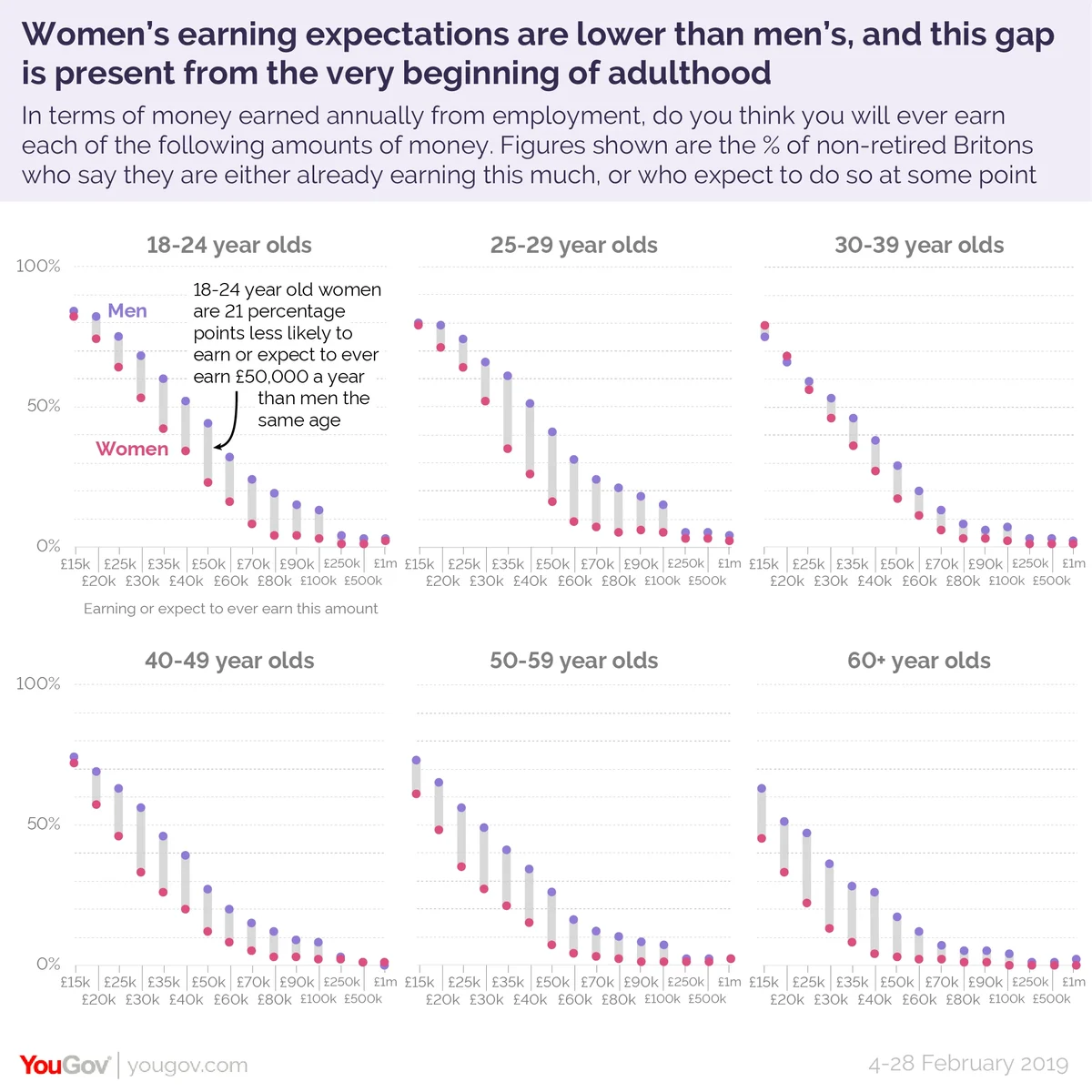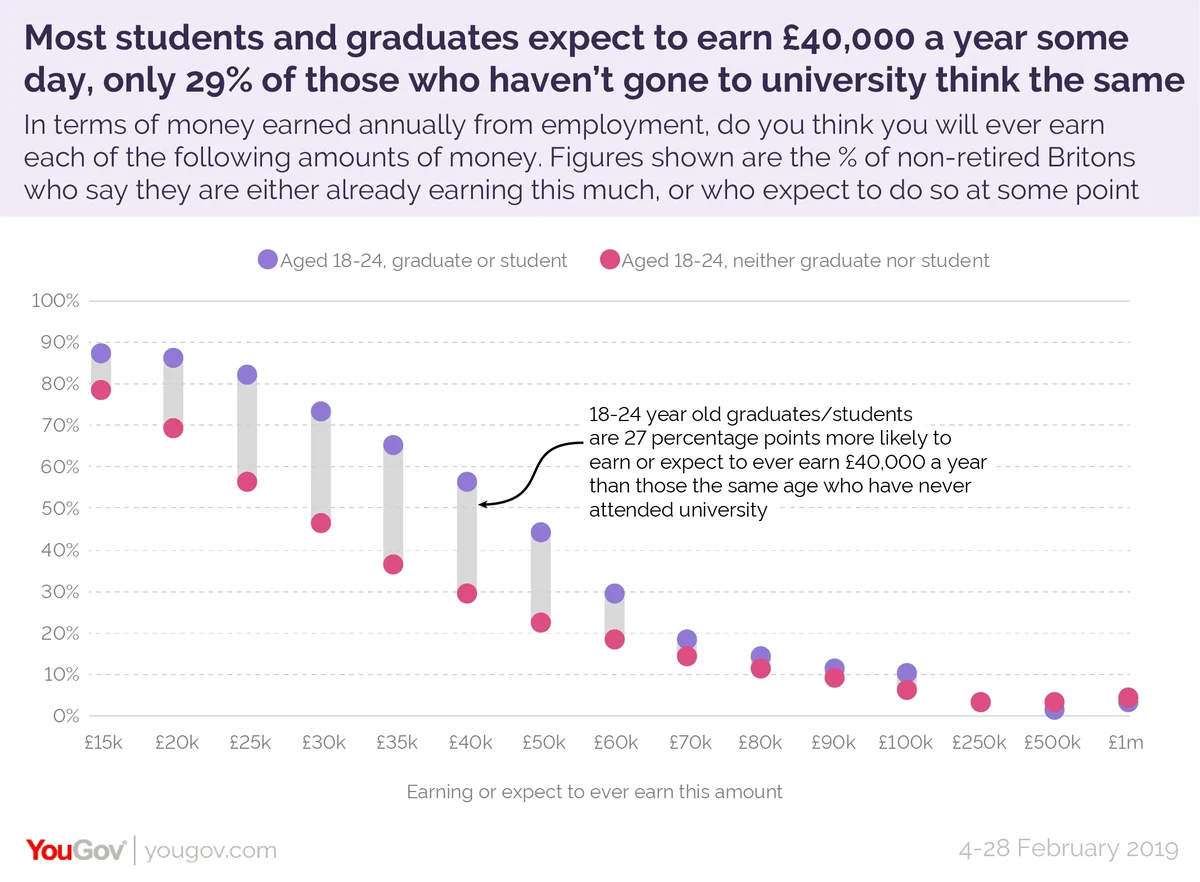Study of earning expectations uncovers a significant gender gap, and reveals that younger people may be overly optimistic about their earning power
A new YouGov survey reveals that young peoples’ earning expectations may be overly optimistic, and that women earn – and expect to continue earning – less than men. Data also shows that the only a minority Britons expect to earn more £30,000 a year or more.
We asked non-retired Britons whether they thought they would ever reach certain levels of pay in their working life. The lowest amount in our survey was an income of £15,000, which 48% of people told us they were already meeting or exceeding. A further 24% said that while they don’t currently earn that much, they expect to do so eventually. Only 7% said they never expect to earn that much.
When we increased the figure to £20,000 we saw the proportion of Britons who already earn or expect to ever earn this much fall to 63%, and there was another drop down to 55% for £25,000 a year.
By the time this figure rises to £30,000 a year, fewer than half of Britons report that they either earn this amount already or ever expect to (45%).
That so few Britons expect to make £30,000 a year is not surprising when you consider that the median annual income in the UK is £28,677 (and in reality is likely to be lower, as this figure only includes full time workers).
However, the survey did also reveal some striking differences in earning expectations between different groups in society.
The dying of hope: older people’s earnings fail to match up to the expectations of the young
The survey showcases the sad spectacle of expectations coming into contact with reality, with younger Britons being more optimistic about their eventual earnings but with older age groups becoming progressively less ambitious.
For instance, 52% of 18 to 24 year olds earn or expect to earn £35,000 a year at some point. By contrast, only 31% of Britons in their fifties have either reached such a level (19%) or still hold out hope that they might (12%).
This generational gap is hardly surprising. As someone gets older and more firmly entrenched in the workforce they will become more greatly aware of their likely pay potential. Likewise, older employees on lower incomes will also be aware that they won’t be able to stay in the workforce long enough to see pay increases significant enough to match the optimism of their younger peers.
It is also worth pointing out that some older Britons may have extra income from non-employment sources, like investments, as well as being more likely to own assets like housing.
Nevertheless, the figures will undoubtedly take the wind out of the sails of Britain’s optimistic young men and women.
The gender expected pay gap
The results uncovered a startling difference in income expectations between men and women. While 75% of men and 71% of women are either earning or expect to ever earn £15,000 a year, women are ten percentage points less likely than men (69% versus 59%) to say the same for £20,000 a year.
The expectation gap is largest at the £50,000 a year mark, which 29% of men are either earning or expect to earn, but only 13% of women.
This gender expectations gap is present from the very beginning of adulthood. Even among 18 to 24 year old men and women – who will only be at the start of their career, and for whom existing salary will account for the lowest amount of difference between the genders – there is still a sizeable expectations gap.
By the £20,000 a year mark women aged from 18 to 24 years old are already eight percentage points less likely than men to be earning or expecting to earn this much a year (82% versus 74%). This gap increases to eleven percentage points at the prospect of earning £25,000 a year (75% versus 64%).
As with the overall gender gap, among 18-24 year olds the disparity is at its widest at the £50,000 a year mark. While fully 44% of young men say they either earn this amount already or expect they will at some point, only 23% of young women say the same.
As can be seen from the chart, the gap between men and women is narrowest among 30 to 39 year olds.
While part of this gap is accounted for by the fact that more men are already earning at higher levels than women, the expectation gap is still significant. It is also worth noting that there is minimal to no difference between the proportion of men and women who answered “prefer not to say” or that they will never work be willing/able to work.
Student and graduate expectations tend to be set much higher than those who don’t go to university
With graduates still likely to earn substantially more over their lifetime than non-graduates, we also looked at how far this was reflected by the expectations of those who do and do not go to university.
Even at the lowest figure of £15,000 a year, the expectations of those 18 to 24 year olds who are either students or graduates and those who are neither students nor graduates have diverged by nine percentage points, with 78% and 87% respectively believing they can ever earn this much money in a year. To put this in perspective, someone working full time on the minimum wage earns around £15,270 a year.
This gap expands to seventeen percentage points at the prospect of earning £20,000 a year (69% of non-students/graduates versus 86% of students/graduates), and reaches its widest point at the prospect of earning £35,000 a year (36% versus 65% - a difference of fully 29 percentage points).














